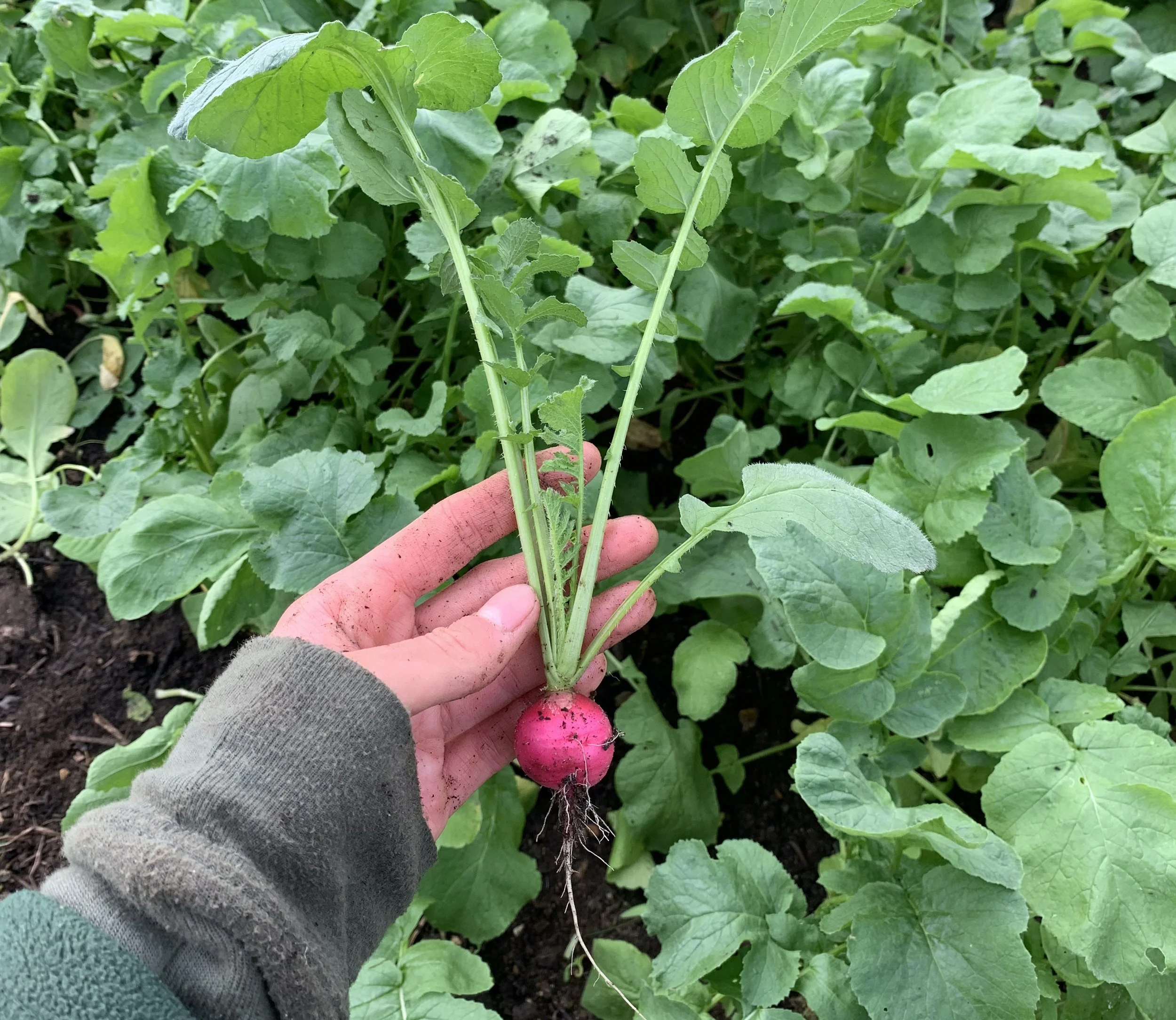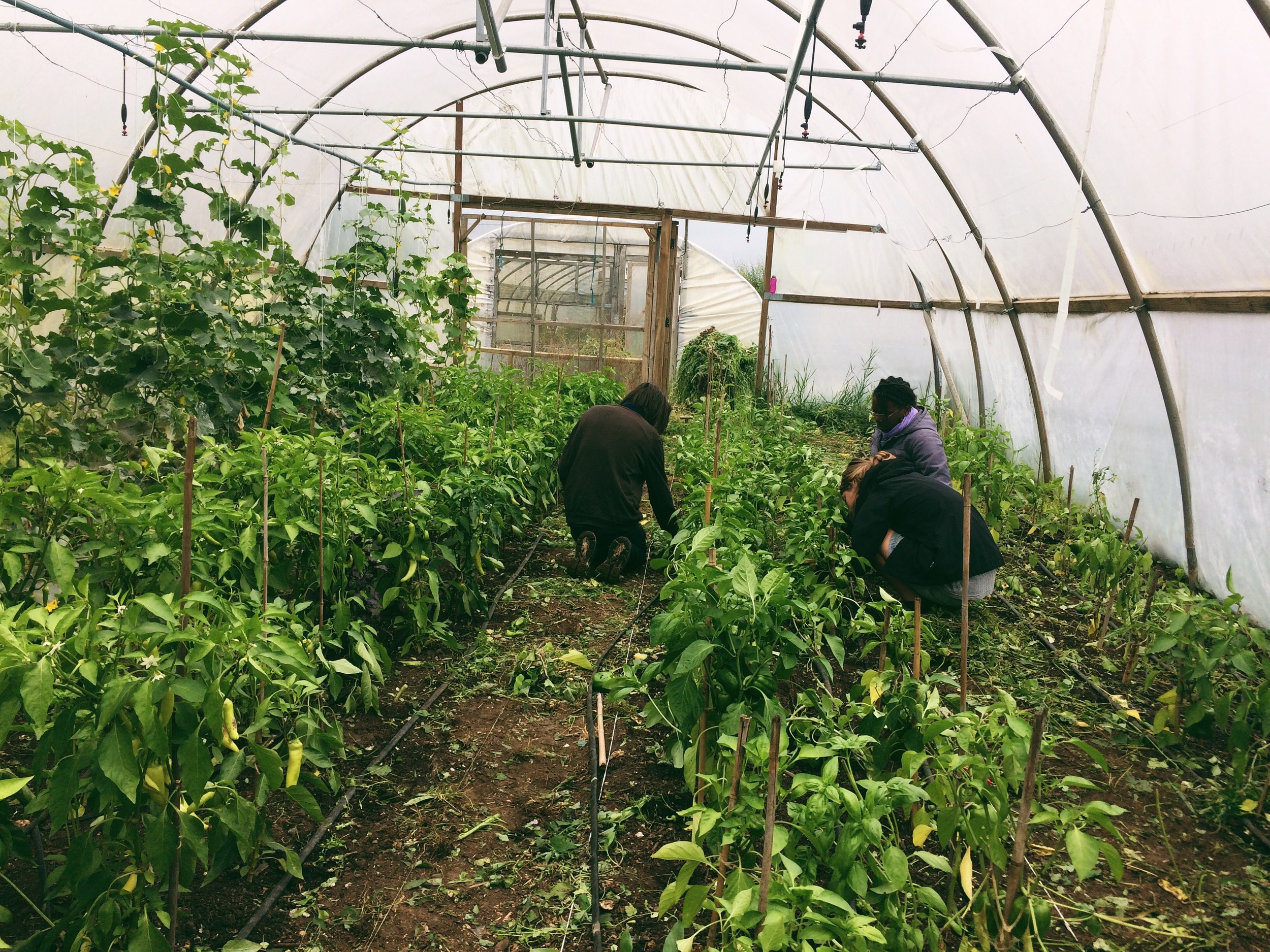What’s the Hungry Gap?
You may associate Spring with growth, abundance, and fields bursting to life, but the reality is that when it comes to growing food in Spring, it’s quite the opposite. While supermarkets have given us a false sense of Spring seasonality, what actually grows in the UK during March till June makes for slim pickings - with April being the leanest month of the year. This period is called the Hungry Gap - a gap in the season where farmers have harvested their winter crops and used up the onions, potatoes, and roots they’ve stored over winter and are waiting on the spring/summer crops to be ready in May and June. Thus, we’re left with a gap in our season.
How can I support British farmers during this time?
If you mainly shop in supermarkets or don’t eat seasonally then it’s pretty easy to ignore the Hungry Gap - we have an abundance of produce flown in from all over the world that enables us to eat whatever we want, whenever we want it. However, there are ways to eat imported food more mindfully and still support UK producers during the Hungry Gap, and all year round.
Many UK farmers who run veg box schemes or farm shops import food from other countries, especially during this time in the season. The difference between supporting them vs. buying imported produce from the supermarket is that organic, small-scale farms will partner with other organic growers in Europe to source imported produce that maintains the standards they set for themselves. In a larger supply chain (i.e. through a supermarket) it is a lot harder to know exactly where your food is coming from and to know that the farmers who grew it are treated right and paid fairly. Farmers will also import foods that are actually in season in those other countries (i.e. Spanish blood oranges) - ensuring that you are eating foods that are naturally at their best and supporting small, local growers in those countries.
Buying your food from local UK farms through a farm shop, farmers’ market or veg box scheme also enables you to understand more about the UK growing season. While you may be getting a bit more imported produce in your box during the Hungry Gap, you will still be supporting a local business that will offer you honest, transparent food throughout the entire year. This is especially wonderful when the abundance of summer vegetables hits and you can try lots of new things you wouldn’t find in the supermarket.
What UK veg can I enjoy during the Hungry Gap?
While the Hungry Gap means less variety, there’s still some delicious UK-grown produce to enjoy. From January to April look out for Purple Sprouting Broccoli, it’s delicious in a stir-fry or curry. Wild Garlic comes out in abundance around the end of February till April and can be easily foraged - look out for it in nearby woodlands (but make sure not to mistake it for Lily of the Valley - more on that here). Rhubarb, Spring Greens and New Potatoes (Jersey Royals and Cornish ‘earlies’ are delicious) are available from March till June/July. And, of course, the Asparagus season that starts around late April is a great way to support British growers.
Spring greens growing at Plotgate Community Farm in Glastonbury, UK











